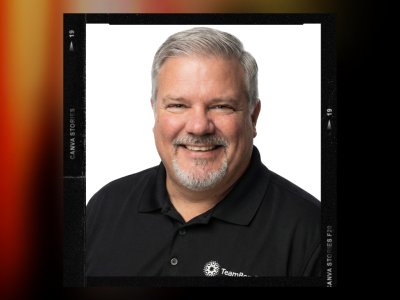STRONG TEAMS DON’T HAPPEN BY CHANCE 
Creating Workplace Values
w/ Braxton Wood

Use the buttons above to listen now.
Transcript - Creating Workplace Values
Rich, Host: On this episode of Team Building Saves the World.
Braxton Wood, Guest: We hire and fire by our core values and duh, duh, duh, duh, duh. Uh, so I think, like, you’re laughing because I know you know it’s true, right? Like, it happens, you hear that so often. That doesn’t sound like something that you should be suggesting. What makes you think that the, that your idea is better than this company’s idea?
You should check your ego at the door. She has still to this day been my favorite boss of all time. Um, including myself, cause I don’t have a boss anymore, but she was, she’s a better boss than I am to my team.
Rich, Host: Hello team. It’s me, your old friend, Rich Rininsland host of Team Building Saves the World, the show where I speak to thought leaders from around the world, discussing variable strategies and tools to help you and your team build a better work environment. And today, we’re talking about the ever-elusive company core values with personalized career mentor Braxton Wood.
But first, I have to share some love with my supporters at TeamBonding. If your team is ready to experience teamwork to the power of play, then visit TeamBonding.com to learn more. Now team, join me in welcoming my guest, career development coach and master of all things about getting you a new job, Braxton Wood.
Hello Braxton! Braxton!
Great. Great. Thank you so much for coming on my friend. It’s so good to have you.
Braxton Wood, Guest: Thank you. I am. Thank you. Like I’m so thrilled to be with you. Thank you so much.
Rich, Host: Well, let’s start off like I usually do here. I want my team to know you a little bit better. So quick as you can. Let’s just talk about who you are, your background, and how you got into this particular field.
Braxton Wood, Guest: Hey, yeah, I mean my 32nd elevator speeches. My name is Braxton wood. I’m the founder of Professional Pivots. I love helping people find work they love and doing it on their own terms.
Rich, Host: Nice
Braxton Wood, Guest: And yeah, I’ve been doing it for, my business has been around for about five years, and the inspiration behind that we can get into it if we want to, but I didn’t go to school hardly at all.
I haven’t set foot in a classroom since I was 11 years old. So didn’t graduate high school, didn’t attend college. And in doing so, I took this journey where I really discovered, um, how you can develop your own profession, develop your own skills on your own terms, in your own time. without waiting for the permission of an employer to give you that opportunity.
And I found it tends to work better. So that’s the inspiration behind what I do and kind of what defines Braxton to some extent. Gotcha.
Rich, Host: Gotcha. So just to clarify with my team, you were homeschooled. Is that correct?
Braxton Wood, Guest: I was homeschooled. I was a homeschool kid.
Rich, Host: Yep. Okay. And what is the mapped framework?
Braxton Wood, Guest: The mapped framework is my framework for how I help people recognize how they can develop themselves professionally.
So it, it can apply both at the 30, 000 foot view to their professional development, to their career development, but also to the individual job hunt and any, any occasion that they’re on the job hunt, it can also apply that. So, that’s my framework that I’ve developed as a result of my experience coming from a homeschool kid, not going to school, but ending up at a 600 employee tech company that required a bachelor’s degree.
My MAP framework is kind of the product of all those experiences.
Rich, Host: Excellent. I was reading your LinkedIn page and they’re just the fans that you have generated on that page, they, they scream your virtues, man. I mean, well done.
Braxton Wood, Guest: Appreciate that. Thank you. Yeah. I’m very blessed to have this experience, but also to be able to help people with, with kind of my perspective on things. It’s, I’m very, very fortunate.
Rich, Host: Excellent. And of course, we’re here today talking about, uh, company core values. Can you start off just if you can define for us what that even means?
Braxton Wood, Guest: Yeah. Uh, to me, I mean, the way I describe it is it’s supposed to be like the umbrella from which a company is like what they’re all about and what a company really focuses on and like as a team, as a collective effort. That’s what I view core values as.
Rich, Host: Okay, when did this idea come about? Because, I mean, I was in, we’re talking about like in the, in the late 80s, early 90s, still doing corporate work, you know, mostly just as a secondary income for myself. But, what are, I mean, when did it start and what’s the purpose of it?
Why do we even have this conversation now?
Braxton Wood, Guest: Yeah, I mean, I, I’m not sure if I can say when it started. I know when I was exposed to this whole concept of core values and, and how, like, and it’s become very much a buzzword in the market in the last 15, 20 years or so, right? So, um, hard for me to say when it came about, but my first exposure to it was really when I worked at that tech company.
Cause that was something you, you know, how it is with Silicon Valley type companies and tech companies outside of that area, they’re all about promoting their core values and being super vocal about it. So yeah, that, that was my initial exposure to it. And it’s something that now, you know how it is, is like, once you hear a concept one time, you hear it everywhere, you see it everywhere, you recognize it everywhere.
That’s kind of what’s happened with me. Yeah, so that’s, I’ve seen a big, it become a big buzzword. I would say in the last 15 to 20 years or so.
Rich, Host: The funniest thing is I really only started hearing about it on this podcast, where, especially when we’re talking about, uh, millennials and the, and you know, the, the latest generation entering into the marketplace, that core values are something that they’re looking at closely.
And then my daughter goes off to high school and the high school has core values that are posted everywhere. So why the importance of it? I mean, I mean, what, what are the companies trying to make happen by posting that these are the things we believe in and the edicts we follow every day?
Braxton Wood, Guest: Yeah, I think part of it is, is because it’s kind of the bandwagon effect.
First of all, it’s like the first purpose is, well, I see other companies doing this, do it too, right? But aside from that, I do think the core values have a purpose and they have a place. Um, most companies treat them as the model by which they base their decision making on and how they, you know, how many times do you hear, you know, guru standing up on a stage somewhere or something like that.
And they’re saying we hire and fire by our core values and da, da, da, da, da. So I think you’re laughing because I know, you know, it’s true, right? Like it happens. You hear that so often. And, uh, so, so there’s that, but I think the bigger picture of core values is in addition to hiring and firing, how do we facilitate the culture in our company and make it a place that it’s desirable to work at?
Rich, Host: So what are some beneficial core values? Like if, uh, are there companies out there that are saying our core values are the bottom line, or are they saying that our core values are, you know, a friendly work environment and good, uh, employee mental health? Yeah. And where are we in between?
Braxton Wood, Guest: Yeah, it’s hard for me to answer that question like in a direct way, because I think there’s the intention behind core values, and then I think there’s actually how they’re lived. And I think that with a lot of companies, I, I almost, in my experience personally, before I started my business, all the companies I worked at, the behavior, the actions didn’t actually reflect what the core values were. And that’s something that I think is more common than most companies want to admit, right?
So, but when used properly and like, in terms of like what a core value is, I think it’s, it’s the guidelines, right? Kind of like what we, what I mentioned before, but like, what is some good core values? I think that a core value or a group of core values at an organization that’s used right, when it’s a focus on how the company serves their customers, serves their clients.
Rich, Host: Okay.
Braxton Wood, Guest: In my opinion, that’s a huge thing to watch for when considering working at a company, when considering if you, you know, even if you own your own company, that’s something to keep in mind. Because what I find is that many companies, their core values based on how the employee should serve the company or how someone at the company should work at the company.
And I think that’s a misstep because as long as you define the core values based on internal behavior, based on how the like it can get abused, it can right, it can start a problem, right? But yeah, so good core values, in my opinion, should have a focus on how do we make sure the customers taken care of?
Because that’s really what a business is designed to do. That’s the purpose of a business is to solve a problem for the customer. So why would your core values not reflect that?
Rich, Host: Okay, so let’s go back because I love how you said it intentioned versus lived. Can you give me some examples of some things you’ve seen where the intention just didn’t match up?
Braxton Wood, Guest: Oh man, one of the biggest things so I’m going to refer to the tech company again because this is probably the most blatant example of like good core values and bad, and to be to be fair to them like they had some good ones, they had some bad ones. But it was all I define them as good or bad. Based on how well the company like executed on them and the team was able to live them.
So the biggest one example of one that was not maybe poorly thought out or poorly executed on ,there was one of the most common ones that was invoked at this tech company of mine was check your ego at the door. And so and the problem with that is, is like, yes, it’s important to remain humble, it’s important to be coachable and teachable and open to feedback.
Rich, Host: Right, Right
Braxton Wood, Guest: But that goes both ways. And how that value got twisted at the company is that if you were subordinate, or if you’re the frontline worker, then you were the one that had to check your ego at the door, not the leadership, not the executive suite. So what would happen is, as an example, what, let’s say like this, I mean, this happened to me personally as I went to my, my manager and then my director with a genuine idea about a process. That would help us streamline how we serve our customers that would make it less headaches for the team and as a whole, and make it for a better experience for the customers. So I ended up going to talk to my director about this and as soon as I like pitched it to them and explained to them like this potential solution that was supposed to make everyone’s lives better.
The feedback I got from my director was. That doesn’t sound like something that you should be suggesting. What makes you think that the, that your idea is better than this company’s idea, you should check your ego at the door.
Rich, Host: Ha, Ha, Ha, Ha. So check your ego at the door, man. We don’t want to hear your opinion.
Braxton Wood, Guest: Exactly.
Rich, Host: Okay. Okay. What about good lived corporate values that you’ve heard of those, those intentions that they that are not only beneficial but that they actually do live by what have you seen?
Braxton Wood, Guest: Yeah, I’m not sure if this is a core value in the sense that I’ve seen them slap it on their wall, like so many companies, right?
Rich, Host: Right, Right
Braxton Wood, Guest: But I love Zappos.com because again, the one of the things they’re known for is like for customer service amongst other things. They’re not they may not even be the cheapest, option, but man, they’re going to serve you if they can, in any way possible. So like one of the things that Zappos.com made sure of and has been making sure of is like, we make sure the customer is taken care of. And so like they, I like to the extent, um, they will like overnight, a replacement, product to you, or they’ll, they, you know, free returns and all that type of stuff. Like all that I think is more encompassing. And Zappos.com has been praised for that type of, that level of service.
Like when we used to talk about it for years, maybe not so much lately, but because the markets become much more democratized, but I love, I’ve always clung to that example because I think it serves it well versus, I don’t hear my former employer ending up in the news for any, you know what I mean? Or in, in blogs because of any great core values that they’ve reflected on.
So like, that’s a big one. I think it’s Zappos and just that level. Of reflecting on how the customer feels, what the experience is, and if they’re being served well.
Rich, Host: Okay. So, as I was saying, I’ve been hearing for years, uh, now the fifth season we’re doing the podcast, and I’ve been hearing everybody saying that as these new people are entering the market, they’re looking at these core values seriously.
As in, do what I believe match what they believe. Is that even something that companies are considering nowadays? Or if you had a new employee coming onto the market and they come to you, you know, for help with a resume or what have you, um, and they just, are you telling them, don’t look at that? That’s not always going to be what you think it’s going to be.
Or do you recommend that they, that yes, you should try to go for, or, or, you know, is there even a better way for this new employee to find out if what they’re reading is true?
Braxton Wood, Guest: I think there’s a great way so it’s funny I just posted a video on my socials this morning talking about this and so in terms of like so, so again keeping in mind that we want to recognize company core values and how they serve the customer, the reason for that is because if you base your decision making on your company, uh, on the customer sentiment, then it’s likely to be neutral and it’s likely to be more truthful versus if it’s more company internal centric, then that can be twisted and interpreted any way that someone wants to serve their own agenda.
And that’s what I found at the tech company as an example. So the thing to watch for, um, is first, Does the company’s core values, if that’s how you’re going to judge a company, especially if they’re very vocal about their core values, which some are, if you’re going to judge them based on their core values, are their core values more centric on serving the customer or is it more centric on serve how the company gets served as in and of itself?
That’s the first thing to watch for. So, um, I think another thing is, what is employee sentiment? So there’s a bunch of resources out there where you can discover like what employees are saying about their company. Uh, Glassdoor.com is one, uh, sites like that, even indeed.com has an employer rating system. Um, so sites like that, you know, they have these core values slapped up on the wall.
Go look at these sites and these resources and see if, if employee sentiment is reflecting the things they’re saying. And I think that’s a pretty good tell.
Rich, Host: What’s the purpose of just slapping them on the wall though? I’m gonna be honest with you, cause it’s, part of it is, maybe it’s just that, that doubt that I have within me, that little cynicism that comes with age.
Where you look at this, you know, the teamwork poster, the, the hang in there, baby poster that’s hanging on the wall. Is it just a method of control for the employee beneath the management? Or is it an actual inspiration that they’re trying to maintain and trying to reach? An d how can we tell the difference, especially early on in the career?
Braxton Wood, Guest: Yeah, I think, uh, for the right company, it is, it, it reinforces something, right? I, there’s, there’s a human principle, like the human psychology suggest, suggests that anything, any habit is built, any concept is better adopted through repetition, right? And so, like, there’s a lot of things that happened, even outside of the career space, even outside of that topic.
In a general sense, humans tend to believe things when they’re given initial evidence of something, and it’s built upon, a foundation is built upon, even if it’s not factual or true, and anything that is presented as the truth, that is the antithesis of it. Some people tend to not sway their opinion or their views on it.
Right. So in that sense, I think, um, core values can become a form of control and that’s what I’ve seen happen. When it’s done right, it can be a form of inspiration because I think it’s so much easier to rally a team, round, rally an organization around, man, look at how we’re helping our customers, look at the successes our clients are having instead of, look what the company’s doing.
Right? And so I think that’s where the line is drawn is how much are we celebrating the company versus celebrating helping others.
Rich, Host: I want to dig into that, especially Braxton, but I need to step away just for a brief second. Hope you don’t mind the speaking of teams. I want to tell everybody out there about a company.
I am very proud to be a part of team bonding. TeamBonding was founded over 20 years ago with one simple question. How can employees have a great time while fostering strong, authentic bonds between people who work together? No matter where your company is located, TeamBonding offers powerful, engaging, custom team building events designed to get the best out of your team anywhere in the world.
They’ve created a catalog of innovative events using the power of play as a learning tool and tapping into the correlation of work and play. So whether it’s scavenger hunts to jeopardy or so many more, the team bonding of activities, whether it’s live, virtual, or hybrid maximizes the impact of team building with an accent on fun to visit TeamBonding.com to schedule your event now. TeamBonding, when you want seriously fun results. And speaking of seriously fun, we’re having a seriously fun conversation with my guest Braxton Wood, talking about that elusive company core values. Uh, Braxton, when, um, when I was living the corporate life, I managed to make myself up to, to middle manager.
And one of the things my boss told me was that, uh, we were doing, uh, corporate security work, and he came in one day and he said, everybody looks miserable. You’re an actor. Get them smiling, you know, teach them how it is that you have to actually, you know, no matter what your day is like, put a smile on your face.Yes, sir. No, sir. Thank you, sir. Thank you, ma’am. Whatever it happens to be.
So I actually came up with this whole philosophy of customer service, wherein we treat each other as well as we treat the customer. Look at the person you’re sitting next to at a booth all day or standing by a door with all day long and treat them as well as you treat, if not better, everybody who’s going to come across your path.
I didn’t realize what I had been doing was creating a company core value, but it was something that my company was actually nice enough to latch onto and, and keep pulling along. So let’s look at this from a company perspective. How would you recommend to one of those managers out there that it is time to reevaluate or even God forbid to start bringing in core values and living by them?
Braxton Wood, Guest: Yeah, I think the first thing is everyone’s biased. And so you have to be willing to take an outside opinion first. Um, so however you want to do that, you could do, people tend to be afraid of taking polls at work because they’re just going to say something to protect themselves.
Rich, Host: Sure.
Braxton Wood, Guest: I don’t even know if that’s the best solution, but like you want to get feedback somehow.
Um, and so if you have a good rapport with your team, that probably means you’re living whether it’s company’s core values to its best, or your own, that’s something to focus on first. So, I think the first step is not even to start a conversation or do a poll or anything like that, but evaluate yourself if you’re really, in a position where you’re able to get that sentiment from your team.
And if the answer to that is no, then you need to evaluate why that is and explore that. And so I really think that’s the first step. And that’s something that I coach my clients on all the time, that I think actually is a big struggle. No one stops to think about, well, how am I actually you know, intentionally serving my team, like right, in the way that I can define it with personal core values.
Um, I think, you know, that that added layers like, well, I need a mode of operation to live by, so I need to make sure that I’m doing it to improve, if not maintain a good morale. So that’s the first step. So then once you’re in a position that you, you know, they, your team knows that you’re on their side, you’re in their corner, and you’re in a position where, uh, they can trust that their feedback is safe. That’s the point you got to get to. Right. Um, so assuming that someone is there, I think easy to have a conversation at that point.
I remember my, I had a lot of managers at the tech company I worked at and there was a manager who I, I had who, when I first went to work for her, I thought she was incredibly intimidating. And I thought my first week with her, I thought that I would have preferred to be on anyone’s team other than hers. But as I got to know her better, she was just kind of a no fuss, no fluff kind of woman. But she was very much like, served her team, and she has still to this day been my favorite boss of all time, um, including myself because I don’t have a boss anymore, but she’s, she’s better boss than I am to my team, probably. So like being able to reflect that, being able to just say things like it is and be like, and be honest and have integrity with it and be, uh, it’s, it can be difficult to communicate that and give that confidence to someone that, their feedback will be, can be trusted with you. So there’s no silver bullet answer on how to do that, but I think it’s important to focus on that.
Rich, Host: So what’s your, what’s your recommendation for, for that first step, the looking inward, am I a part of this team? Am I living up to the core values that not only the company wants to see, but that I myself want to project.
Braxton Wood, Guest: Yeah. So I think you need a frame of reference, right? So whether it’s the company’s core values, again, assuming that you’re trying to live them to your best, ask yourself if there’s anything like take inventory on your own behavior, on your own decisions and ask yourself, okay, assume, assuming these core values are good and they’re intentional when used properly and lived properly are, have I, have I ever done anything that has violated those core values anyway, no matter how small it is, and take inventory on that. And then ask yourself, what was the judgment or the decision making process to lead me to violating that core value? And you got to be really honest with yourself. You’re not, you know, you’re not sitting down talking to a therapist or your spouse or something or even your own manager. It’s easy to be honest yourself if you’re willing to be objective. And I know that can be challenging, right? Yeah. It’s important to do that, to sit down and take inventory of your choices, your decisions as it pertains to your own core values or your company’s and ask yourself, what is Um, and then evaluate the decision making process behind why those values were violated and see if it’s something that you can change, you can reflect on, that you can adjust, and I think most importantly is, how will your team that you’re leading recognize that this change is making?
Do you share that with them openly? Is that something that you lead by example just in the way you behave and the way in the decisions you make going forward? Um, that would be, I think, a huge step to take is, be objective and take inventory. Okay.
Rich, Host: Now let’s look at it from the other end. How can I be sure that I, if I’m at the workplace and I’m doing my best, I’m trying to meet these goals, but the core values are either not being followed through on the management level, or it’s just not tenable.
How can I, how do I know, when do I know, I should ask, and, and how can I go about repairing the damage that is obviously going to be caused at this disparity.
Braxton Wood, Guest: The biggest issue that all my clients come to me for, and I’ve worked with some very accomplished people, vice presidents of publicly traded companies. I could list a few of them, and even people at that level of that caliber. struggle with feeling fulfilled and engaged in their work. And so I think that in, in terms of answer to your question is like the, the question, the conversation you have with yourself is, um, how much am I willing to risk or, you know, execute on at, at the peril of my own profession, at the peril of my own standing at my company.
So that’s the first question you got to ask yourself. Okay. But for those, my point is, is for those that really want to feel engaged and really are willing to make an impact. I’ve seen, um, Some of these people, some of these incredible professionals kind of fall on their own sword for the sake of their team.
I’ve seen people that have, so you got to ask yourself where on the spectrum you’re willing to, you know, possibly sacrifice yourself a little bit.
Rich, Host: It’s great. That’s a great personal core value though. You got to give them marks though..
Braxton Wood, Guest: I mean, if we’re going to have, and there’s no exceptions with your integrity without you view your core values, right?
So if you’re going to live your core values or even your companies, when intentioned properly, then that’s a quick conversation you have to have with yourself. I had a good friend that was a product manager at the tech company. And they were letting go someone on his team for purely arbitrary, superficial reasons had nothing to do with performance or anything like that.
He was the best person in that department and my friend walked up to the director and he said, if you let him go, then you’re going to say goodbye to me too, because this is not right.
Rich, Host: Nice.
Braxton Wood, Guest: My friend lost his job over it, because that’s what it was
Rich, Host: Yeah, yeah, there’s the gamble.
Braxton Wood, Guest: Exactly. And, and, but he was fine. He was fine with it.He was fine taking that risk. Cause he decided in terms of his personal core values. And seeing the core values that the company on the wall, recognizing they’re being violated in this situation, he said, if you got basically what he was really telling them is that you’re going to live, if you’re going to, uh, what’s the word?
If you’re going to like objectify or exploit these core values for this, just so you can fire this person just cause you don’t like them personally or whatever, then that means you’re not the kind of company I want to work for. So it’s, you know, the ball’s in your court. You’re not going to lose one person, you’re going to lose two over this. If this is the decision you’re going to make. And, and he was fine with it. Um, so I think it’s important to recognize like you’re, it’s an uphill battle and you wanting to make an impact can send a message. And when he did that, it did send a message, but it’s going to be, you’re, there’s going to be a cost to it as well.
Rich, Host: You’re saying that the, the best kind of core values, at least the most honest kind of core values of those that should be client based. How is it that, how hard is it, I should say nowadays for, for a person to actually go, I’m coming to work for somebody else that my job is really centered upon the betterment of that, you know, innocuous person that 90 percent of us won’t even meet that, that does seem to be a check your ego at the door kind of scenario.
Um, but that is what pretty much business is nowadays. I mean, how do we, how do we compensate that disparity?
Braxton Wood, Guest: the disparity between between..?
Rich, Host: Between, between a company trying to say, come and work for us. You know, you’re gonna have a great situation. We have, uh, we have put so much thought into the care and well-being and safety of our employees.
But by the way, your entire job is making sure that you’re not happy over that person out there being happy.
Braxton Wood, Guest: Gotcha. Yep. I mean, what’s, I guess my, my knee jerk response to that is what’s the alternative. I would much rather go work at a company and hear them say, this is how we value our customers. Here’s how we treat our customers because in the long, in the short of it, look, they’re making your paycheck.
They’re writing your paycheck. Right? So I’d much rather hear a company share those values with that angle than say, here’s what expected, what’s expected of you. Here’s our core values about how you’re supposed to serve us. Right. Yeah. That and so on. Like I, it just seems like a little bit more egocentric, which is ironic considering most companies have a core value about ego to some extent.
Right. Yeah. So I think that’s in terms of disparity, there’s, there’s ultimately a company can have core values that are very centric on how the company is served by their teams and that can still be a good company to work at. Right. I’ve just seen too many occasions, too many examples of companies that I’ve worked at, that friends I’ve worked at, that clients have worked at. Where those core values that were company centric got abused, got used as a weapon. And the common thread I saw was it was always when it was a company centric core value. And so I asked myself, well, how would you avoid that? How could you potentially avoid that? Make it more about the customer because that’s what a business is there for anyway.
So if you do that, yeah. And for the right people, I think that creates alignment for your teams and the people you hire as well, because good people are wanting to make an impact, wanting to be engaged, wanting to be fulfilled in what they’re doing in their work. And is that not something that tends to be client centric as well?
I used to work at a tech company where our whole, the, the, the product, the purpose was to help small businesses grow and succeed. Right?
Rich, Host: Right.
Braxton Wood, Guest: And so. That is very much a customer centric value that is noble, right? And me being the kind of person that was passionate about business, about entrepreneurship, that I found alignment with that company for that reason.
And so me personally, at an individual level, I made a lot of impact in individual businesses. I’ve worked with over 500 companies across 11 countries, partially as a result of working at that tech company. And so for me, I felt very engaged and very fulfilled because again, I was focused on the customer and making impact in their business was huge for me.
So I just think that’s in the short of it, like, In trying to navigate that disparity, I think, um, you can err on the side of caution and being more customer centric in your core values and you’re based on my observation, you’re likely to be more successful in keeping the morale of your teams for that reason.
Rich, Host: This has been going great. I, I, I, I’m getting the signal from my producer that we might want to start wrapping things up a little bit, because as I told you in the pre interview, I can just talk and talk about these topics forever. But let me ask you, when you have clients who come to you and they’re trying to improve their careers, they’re trying to take a more positive step forward, does this even come up?
And if it does, what kind of core values do you recommend to them to look for?
Braxton Wood, Guest: Yeah, I think the core value conversation does come up all the time, especially with the nature of the client that I work with. A lot of the type of companies they want to work at are the type of companies that tend to be very vocal about their core values.
So I tell them, like, I help them understand companies, no company is perfect. But if you’re going to spot certain things, like it really is fairly easy to say, are there core values more centric on the employee serving the company or are they more centric on how the company serves the customer? And if it’s the latter, then you’re going to be, in my opinion, more likely to find a good fit with that company.
But then it’s easy to in terms of what you’re looking for. Their core values are probably plastered all over the walls, even plastered on the website somewhere. It’s easy to go and do your homework on that. Uh, I always tell my clients personally, go to a site like Glassdoor.com and see if those values are being reflected in their employee reviews on Glassdoor.
Or not. And sometimes you got to be careful because with Glassdoor, like you don’t want to necessarily believe all the five star reviews because companies tend to a strong arm their people to go leave reviews. You don’t want to believe the one star reviews either because that’s just a disgruntled employee.
So if you, if you go read the three star reviews, they’re probably the more accurate, most accurate ones. And they’re going to tell you the good and the bad. It’s probably as neutrally as possible. So what are the three star reviews? Say, look at those and see how they match up to the core values that you keep hearing about from this company.
Rich, Host: Fantastic. My team out there, please give another big round of applause for Braxton Wood.
Thank you so much for coming on. Uh, can we please, before we get to some fun stuff here, I do want to ask, is there a way my team out there can reach out to you, a place they can find you or find out more about you?
Braxton Wood, Guest: Yeah, absolutely. So anything, my socials, my, my email, my, I do a lot of, um, like partnerships and things like that. All that information can be found on BraxtonWood.VIP. You go to Braxtonwood.VIP. Everything I do is down on that one page.
Rich, Host: Excellent. And did you have some fun? Absolutely. Thank you for having me. Yeah. I’m glad you did. And I hope it continues to be so because we’re going to get into my speed round now.
So, I didn’t actually explain this to you earlier, Braxton, that I went to now. Um, this whole podcast actually started out as me talking to other team building facilitators. And as a method of kind of making up for all those people out there in the world that we forced to do games when they weren’t ready to play games, I came up with this game.
And, uh, all it is is 60 seconds. I’m gonna be playing some music that just keeps me in track of how much time we have left. In that time, I’m going to ask you just a series of completely innocuous questions about you. It’s a way for us to get to know you just a little bit better personally. The objective, if you’re feeling up to it, is to try to just answer as quickly as you can, and if you feel competitive at all, we’ve hit 15 questions asked within 60 seconds.
So, you feel, you feeling good?
Braxton Wood, Guest: I can do it. Let’s do it.
Rich, Host: All right. I’m going to start playing some music. I will ask the first question and whenever you’re ready, here we go. What’s your name? Braxton
Braxton Wood, Guest: Braxton Wood.
Rich, Host: How many kids do you have?
Braxton Wood, Guest: Uh, three.
Rich, Host: Which one’s your favorite?
Braxton Wood, Guest: Oh boy. Um, none. I love them all for different reasons.
Rich, Host: Do you have any pets?
Braxton Wood, Guest: Two. Well, a lot. I have a dog, a cat, the cats, my wife’s, and then we have 10 chickens.
Rich, Host: Nice. If you could ask any of your pets, any questions and get an answer, what would that question be?
Braxton Wood, Guest: I’d ask my dog, why on earth is he so hyper? He’s a dog.
Rich, Host: That’s just an easy one. I got you. Um, okay. What’s one choice in your life you really regret?
Braxton Wood, Guest: Oh, I regret. I have always been interested in real estate investing and I regret selling every house that I’ve owned.
Rich, Host: Wow. What’s the most courageous thing you’ve ever done?
Braxton Wood, Guest: Oh, my gosh. Um, I just got back from a pitch competition a few weeks ago, um, just outside of Kansas City. It was pretty fun.
Rich, Host: Excellent. Who would you like to see play you in the movie of your life?
Braxton Wood, Guest: Oh, man. Um, I am, I don’t know, man. Let’s say Bradley Cooper.
Rich, Host: That’s fine. Not a problem. You got nine, sir. A gentleman’s nine, as we call it. Love it. Braxton, again, thank you so much for coming and playing with us today. Thank you for being a part of the show. It means the world to me that we get out there and we share all this great information. My team out there if you are looking for the chance to actually increase your not only wealth, but also your standing and your, and the, the better job that you think is out there for you. Don’t be afraid to reach out to my friend, Braxton Wood.
Thank you so much. Thank you. And thank you, my team out there. That’s it. We’ve wrapped up yet another episode of Team Building Saves the World. You’ve enjoyed this show, whether new to the podcast or an old fan of the show, please be sure to share it with everyone. You know, whether they’re a coworker, a friend or family member, it just helps us to share.
All this vital information. You can find out all about us, including all past episodes at Teambonding.com/podcast. You can also find us wherever you find your favorite podcasts, Google podcast, Apple podcast, Spotify, wherever you go, my friends, I will be there. And don’t forget to look for all of us on the social media as a TeamBond podcast. Leave us a message. Tell me whether you liked the show, whether you had a follow up question you want to know about. If you didn’t like the show, if you have a topic for the future, you need to hear about, I want to hear from you. So, before we say farewell for this episode of Team Building Saves the World, please never forget, if you are within the sound of my voice, you’re on my team now, and I am forever going to be on yours.
So long, team. See you next time.
It’s been said that you learn more about a person in an hour of play than in a year of conversation. So why not put your coworkers to play with the help of the team at TeamBonding? TeamBonding was founded over 20 years ago with one simple question. How can employees have a great time while fostering strong, authentic bonds between people who work together?
Their catalog of innovative events include scavenger hunts, jeopardy, and much more. Each activity, whether live, virtual or hybrid, maximizes the impact of team building with an accent on fun. Visit TeamBonding.com to schedule your event. Now TeamBonding, when you want seriously fun results.
July 8, 2024
In this episode of Team Building Saves the World, Rich sits down with Braxton Wood, Chief Career Mentor at Professional Pivots, about the ins and outs of company core values. The pair discuss common workplace values–such as integrity and respect–and dig deeper into customer-centric core values. Braxton emphasizes the importance of having a customer-centric culture in order to encourage strong company values and give employees a shared purpose. Dive into this episode to discover how to build, enforce, and embody your company’s core values and mission statement.
About Braxton Wood:

I think core values can become a form of control and that's what I've seen happen. When it's done right, it can be a form of inspiration because I think it's so much easier to rally a team and organization around, man, look at how we're helping our customers.
Braxton Wood
More great podcast episodes.
Season 6 | Episode 18
That’s a Wrap!
Season 6 | Episode 17
Work-Life Integration
Season 6 | Episode 16
Laughing it Off
Season 6 | Episode 15
Corporate Volunteerism in Action
Season 6 | Episode 14
Collaborative Play at Work
Season 6 | Episode 13
The Science of Supportive Workplaces
Season 6 | Episode 12
The Power of Being Present
Season 6 | Episode 11
The Age Advantage



















